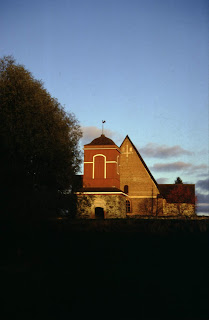St Augustine's pear theft

In the second book of his Confessions , St Augustine recounts a boyhood incident: he and his fellows did steal some pears from the neighbourhood. A modern reader probably sneers at the moral pangs Augustine describes in the following chapters. Really, how does one feel guilty on such an occasion? He and other lads wanted to taste some pears from some other's garden. Augustine admits that he was not deeply fond of the pears themselves but rather liked the idea of doing something forbidden: "I joyed in the theft and sin itself." Clearly, it was a heedless act: some teenagers took fruits and threw them away, after hardly tasting them. It happens. Does it yet qualify for an object of serious remorse? Some regard this episode as a proof of the absurdity of Christian ethics, concerned on the minute naughty thoughts. There are true problems in the world, real viciousness takes place, other than folly of the adolescent. On the other hand, St Augustine's thoughts on human be...

